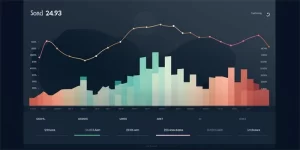Artificial Intelligence (AI) has emerged as a driving force in technology, revolutionizing various fields and unlocking new possibilities. With the advent of free AI kits, individuals and businesses now have the opportunity to explore the limitless potential of AI without breaking the bank. In this article, we will delve into the top free AI kits available and how they can fuel endless creativity.

1. TensorFlow
TensorFlow, developed by Google, is one of the most popular open-source AI libraries. It provides a comprehensive ecosystem for building machine learning models, including deep learning neural networks. TensorFlow’s versatility and flexibility make it suitable for a broad range of applications, from image and speech recognition to natural language processing. Its extensive documentation and active community support make it an ideal choice for both beginners and experienced AI enthusiasts.
Explore TensorFlow here.
2. PyTorch
PyTorch, developed by Facebook’s AI Research lab, is another powerful open-source library widely used in the AI community. It focuses on simplicity and usability, providing an intuitive interface for building and training neural networks. PyTorch’s dynamic computational graph enables developers to easily debug and experiment with their models. The library is particularly popular in the research community due to its seamless integration with Python.
Learn more about PyTorch here.
3. scikit-learn
scikit-learn is a free library for machine learning in Python. It provides a user-friendly interface for implementing various machine learning algorithms, such as classification, regression, and clustering. With scikit-learn, users can quickly experiment with different models and evaluate their performance using robust evaluation metrics. The library also offers tools for data preprocessing and model selection, making it a comprehensive choice for AI enthusiasts.
Get started with scikit-learn here.
4. Keras
Keras, built on top of TensorFlow, is a high-level deep learning API that simplifies the process of building and training neural networks. It allows users to rapidly prototype their AI models and offers easy-to-use abstractions for defining layers, optimizers, and loss functions. Keras supports both sequential and functional model architectures, making it suitable for a wide range of AI applications. It has gained popularity due to its user-friendly interface, extensive documentation, and wide range of pre-trained models.
Discover Keras here.
5. OpenCV
OpenCV (Open Source Computer Vision Library) is an open-source computer vision and machine learning software library. It provides a vast collection of algorithms and functions for real-time image and video processing. OpenCV empowers AI enthusiasts to develop applications involving facial recognition, object detection, gesture recognition, and more. With its support for multiple programming languages and cross-platform compatibility, OpenCV is a versatile toolkit for AI vision projects.
Learn more about OpenCV here.
6. NVIDIA Deep Learning SDK
Designed for developers and researchers, the NVIDIA Deep Learning SDK provides a comprehensive set of tools and libraries to accelerate deep learning training and inference. It leverages the power of GPUs to deliver significant performance boosts, making it ideal for computationally intensive AI tasks. The SDK includes frameworks like cuDNN and TensorRT for high-performance deep neural networks, as well as libraries such as CUDA and NCCL for efficient parallel computing.
Explore the NVIDIA Deep Learning SDK here.
7. Amazon AI Services
Amazon AI Services is a suite of cloud-based AI services offered by Amazon Web Services (AWS). It provides ready-to-use AI capabilities that can be easily integrated into applications without the need for extensive AI expertise. The services include Amazon Rekognition for image and video analysis, Amazon Polly for text-to-speech conversion, and Amazon Comprehend for natural language processing. These services democratize AI and enable developers to incorporate cutting-edge AI functionality into their projects.
Discover Amazon AI Services here.
8. H2O.ai
H2O.ai is an open-source machine learning platform that simplifies the process of building AI models. It offers an easy-to-use interface for data exploration, feature engineering, model training, and deployment. H2O.ai supports various popular machine learning algorithms, including gradient boosting, random forests, and deep learning. Its distributed and scalable architecture makes it suitable for handling large datasets and scalable AI deployments.
Visit the H2O.ai website here.
9. Microsoft Azure Cognitive Services
Microsoft Azure Cognitive Services is a collection of AI services provided by Microsoft Azure. It offers APIs and services that enable developers to incorporate AI capabilities into their applications, covering areas like vision, speech, language, and decision-making. Services such as Computer Vision, Text Analytics, and Language Understanding Intelligent Service (LUIS) provide developers with powerful AI tools while abstracting away the complexities of building AI models from scratch.
Learn more about Microsoft Azure Cognitive Services here.
10. Google Cloud AI Platform
The Google Cloud AI Platform is a cloud-based infrastructure that facilitates the development, deployment, and management of AI models. It integrates with popular AI frameworks like TensorFlow and scikit-learn and provides a scalable environment for training and serving models. The platform includes features like AutoML, which allows users to build AI models without extensive coding or AI expertise, making it accessible to a wider audience.
Explore the Google Cloud AI Platform here.
Frequently Asked Questions (FAQs)
Q1: Are these free AI kits suitable for beginners?
A1: Yes, many of the mentioned AI kits offer user-friendly interfaces and extensive documentation, making it feasible for beginners to start their AI journey. They provide tutorials and examples to help users understand the concepts and apply them to real-world problems.
Q2: Can I use these AI kits for commercial applications?
A2: The majority of the mentioned AI kits are open-source and can be used for commercial applications without any licensing issues. However, it is advisable to review the specific licensing terms of each kit before using it commercially.
Q3: Do these AI kits require extensive computing resources?
A3: The computational requirements vary depending on the complexity of the AI models and the size of the datasets. Some AI kits, like the NVIDIA Deep Learning SDK, leverage GPUs for accelerated processing. It is recommended to assess the hardware requirements specified by each AI kit before initiating resource-intensive tasks.
Conclusion
The availability of free AI kits has democratized the field of artificial intelligence, allowing individuals and businesses to explore its vast potential without financial constraints. Whether you are a beginner or an experienced AI enthusiast, these top free AI kits provide a diverse range of tools and libraries to unlock endless creativity. From TensorFlow’s versatility to OpenCV’s computer vision capabilities, the possibilities to innovate and create with AI are truly boundless.
References:
[1] TensorFlow – https://www.tensorflow.org/
[2] PyTorch – https://pytorch.org/
[3] scikit-learn – https://scikit-learn.org/
[4] Keras – https://keras.io/
[5] OpenCV – https://opencv.org/
[6] NVIDIA Deep Learning SDK – https://developer.nvidia.com/deep-learning
[7] Amazon AI Services – https://aws.amazon.com/artificial-intelligence/
[8] H2O.ai – https://www.h2o.ai/
[9] Microsoft Azure Cognitive Services – https://azure.microsoft.com/services/cognitive-services/
[10] Google Cloud AI Platform – https://cloud.google.com/ai-platform/








